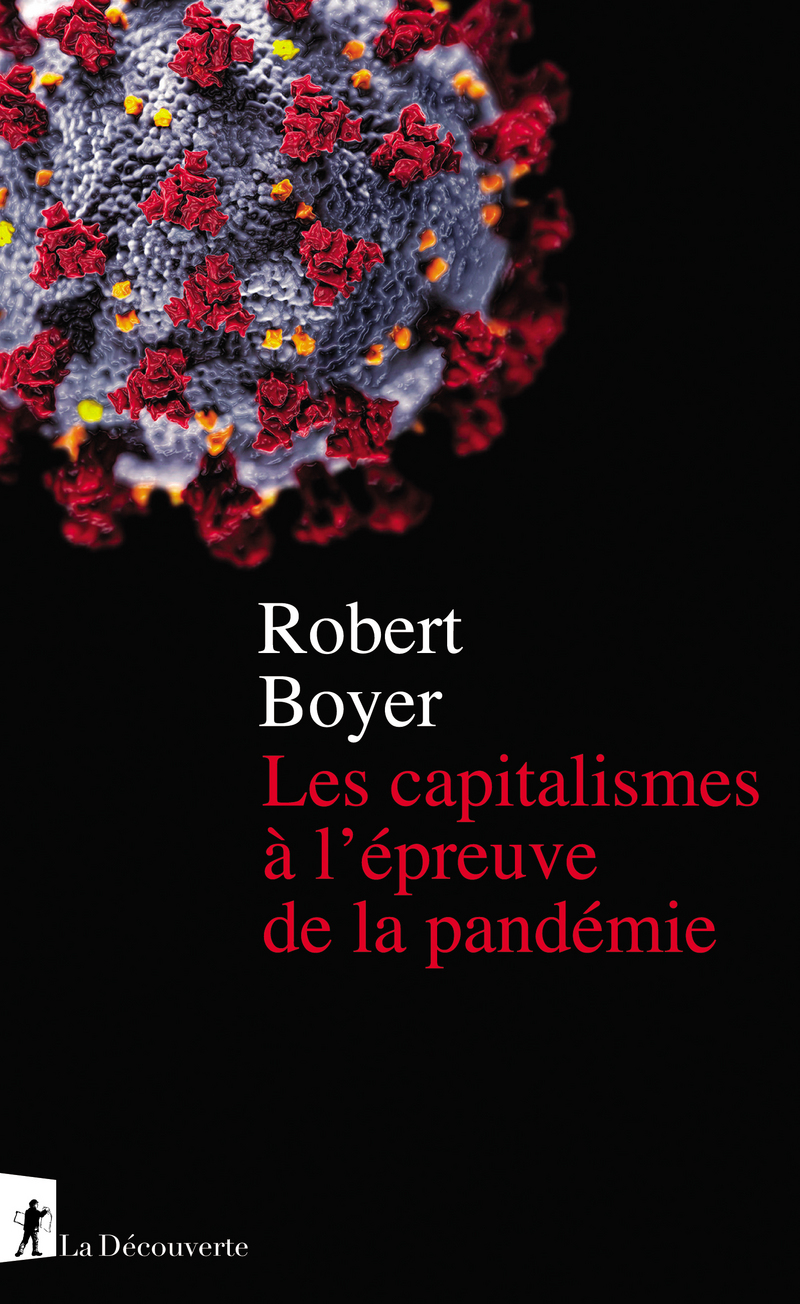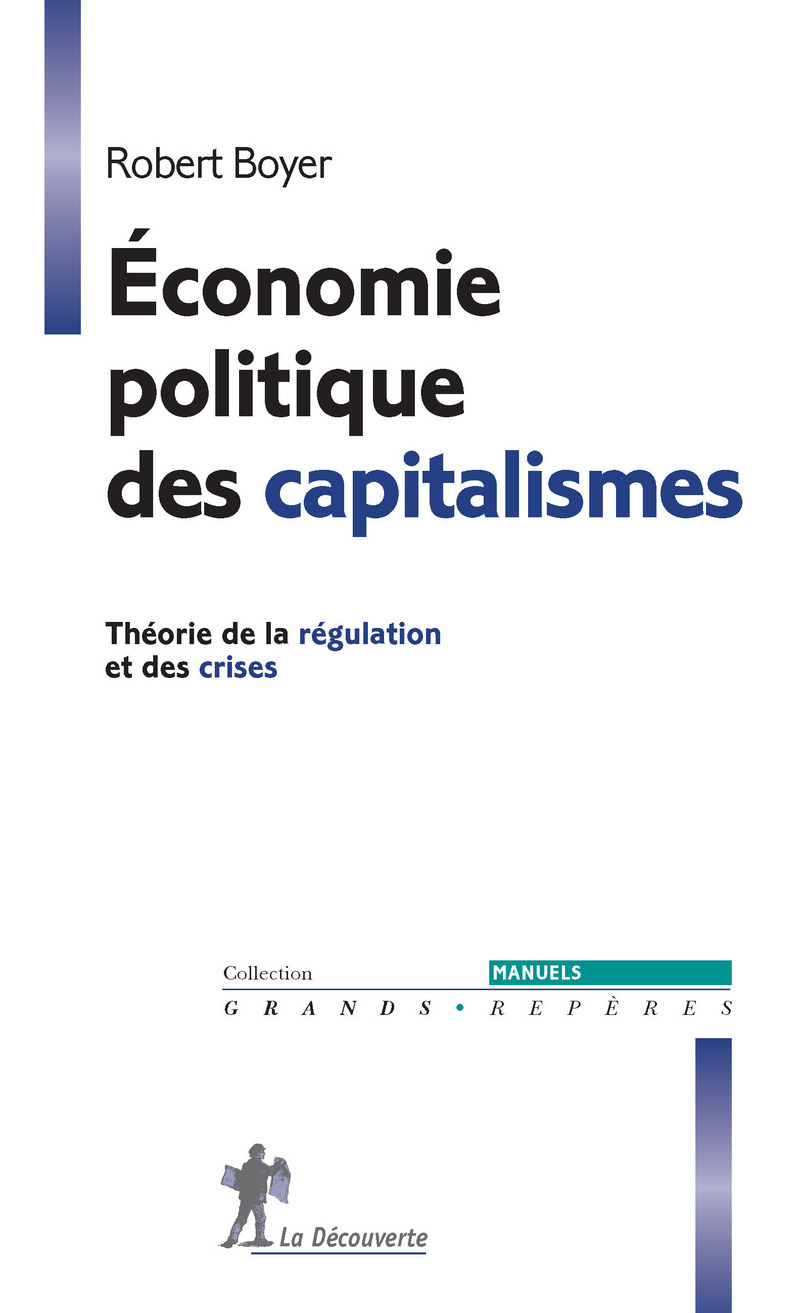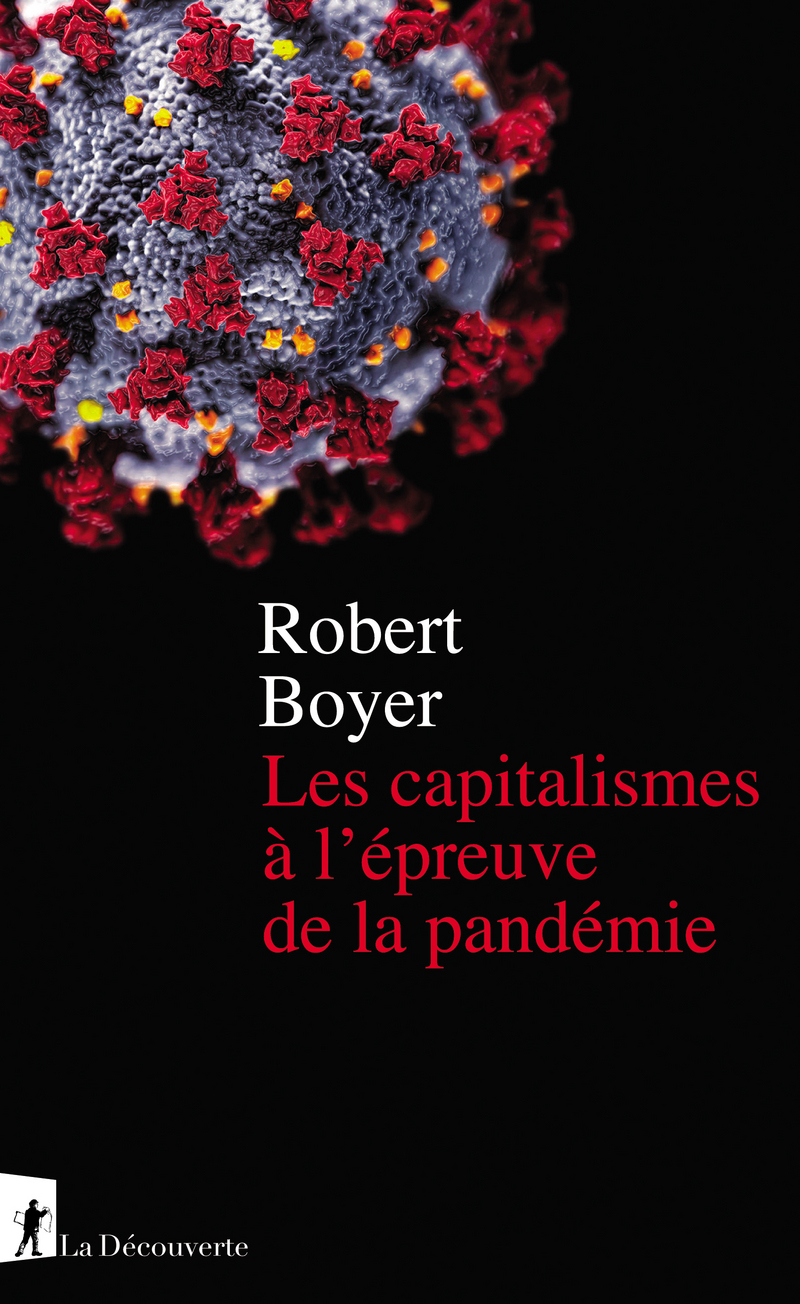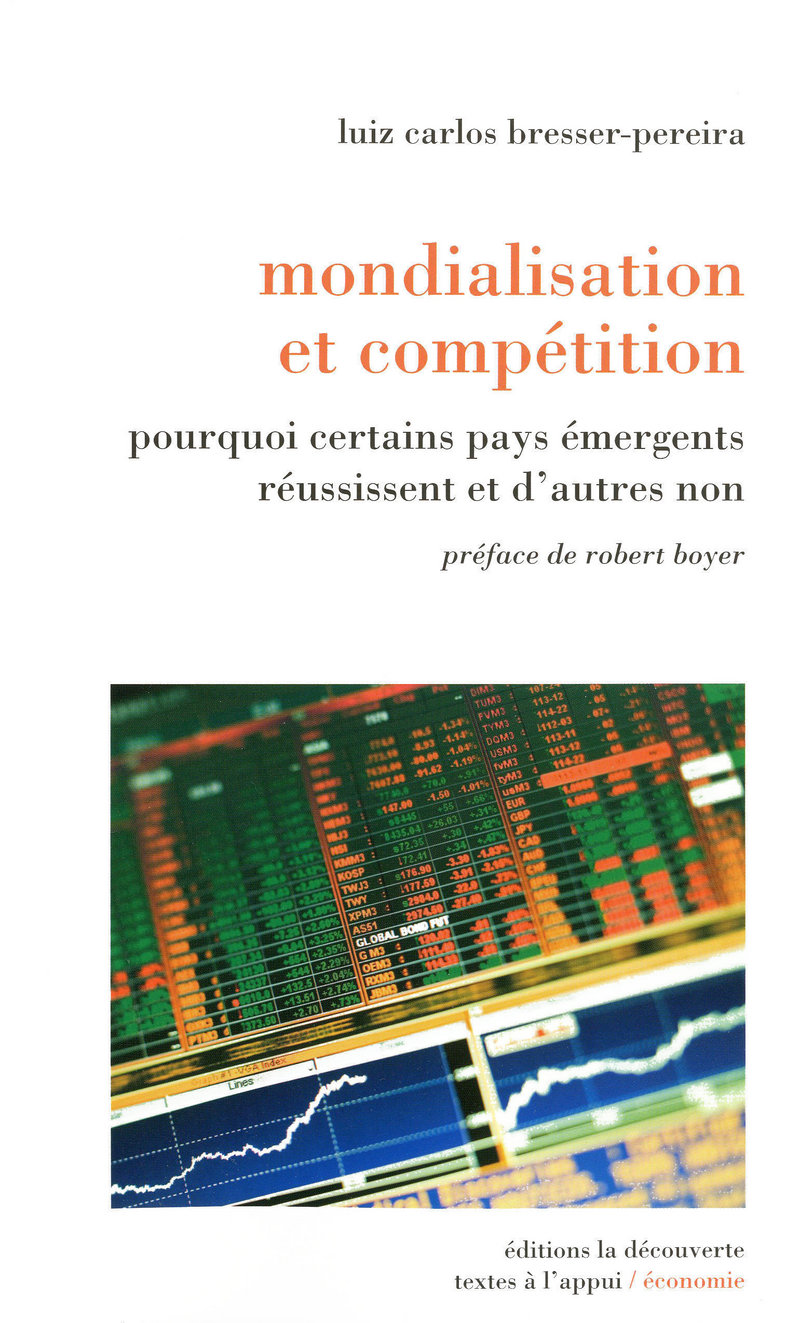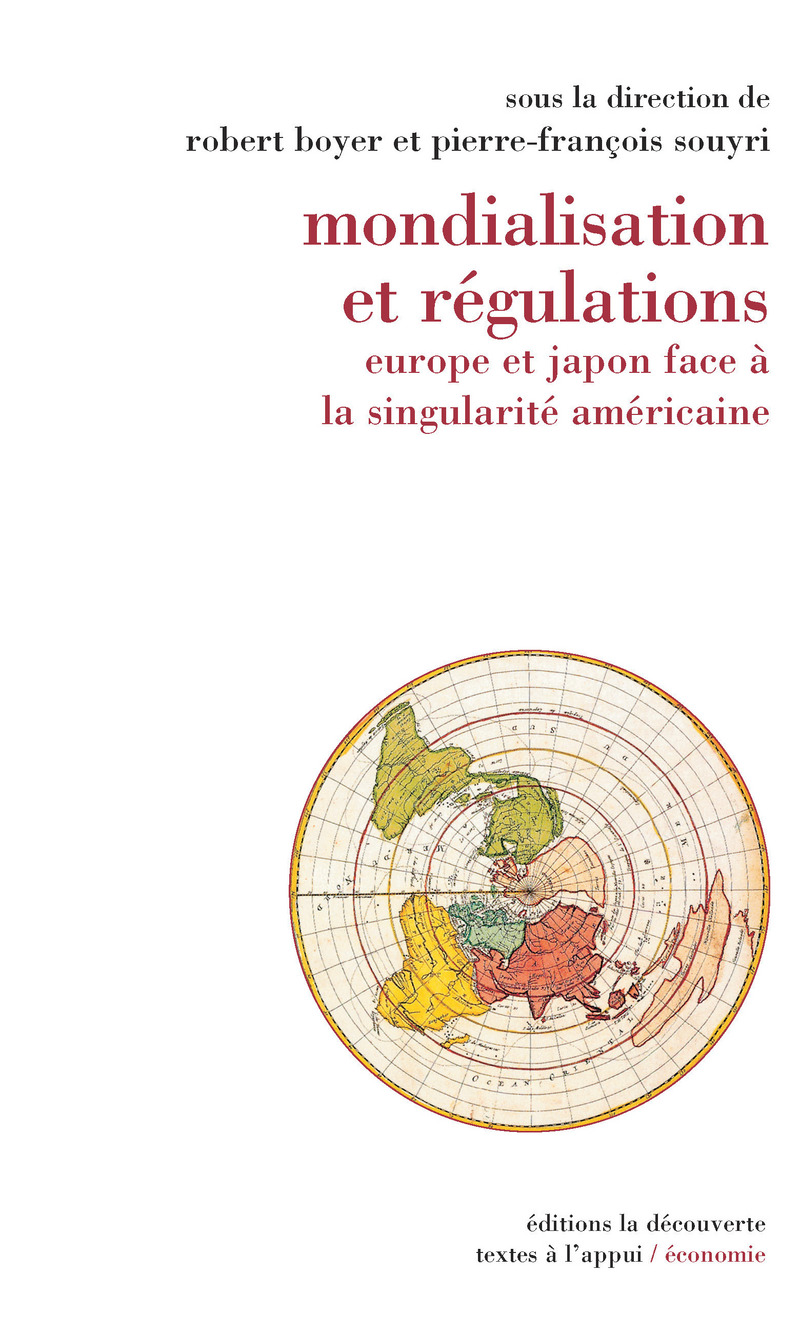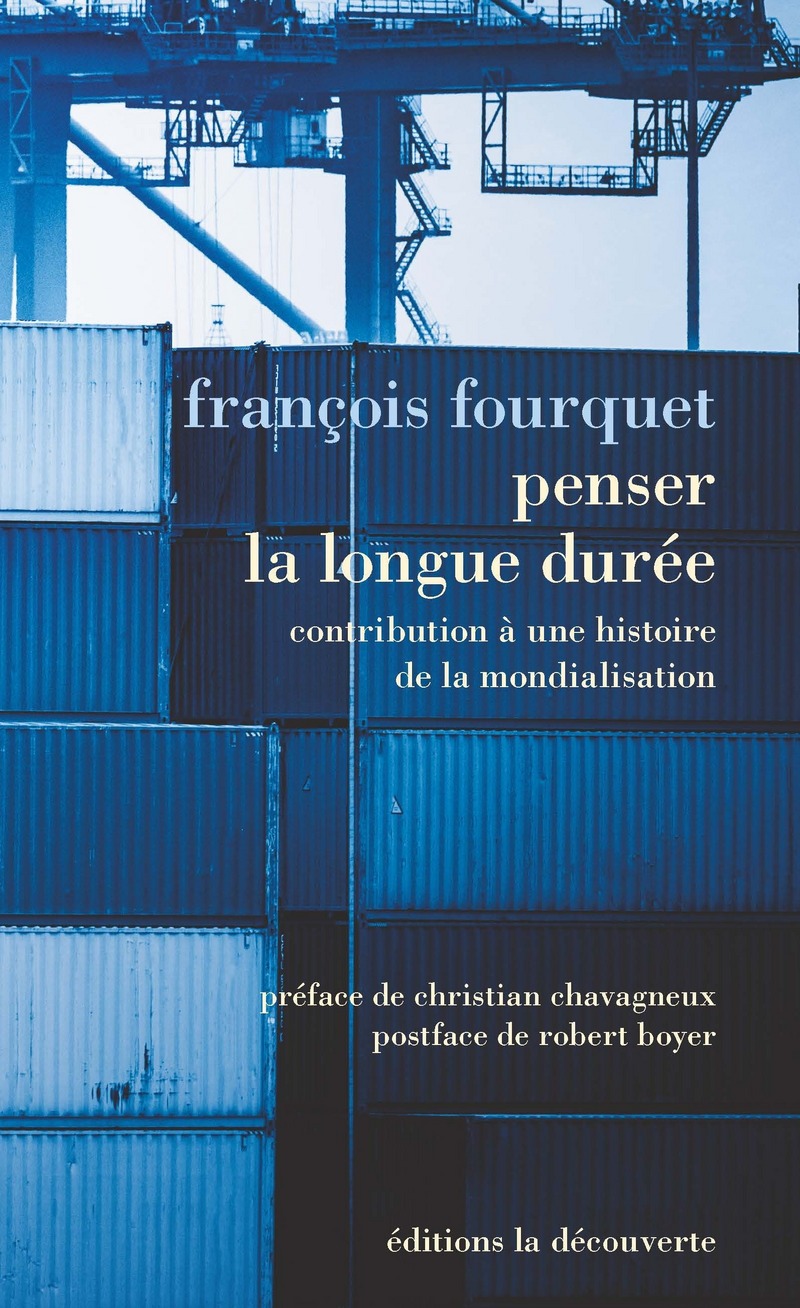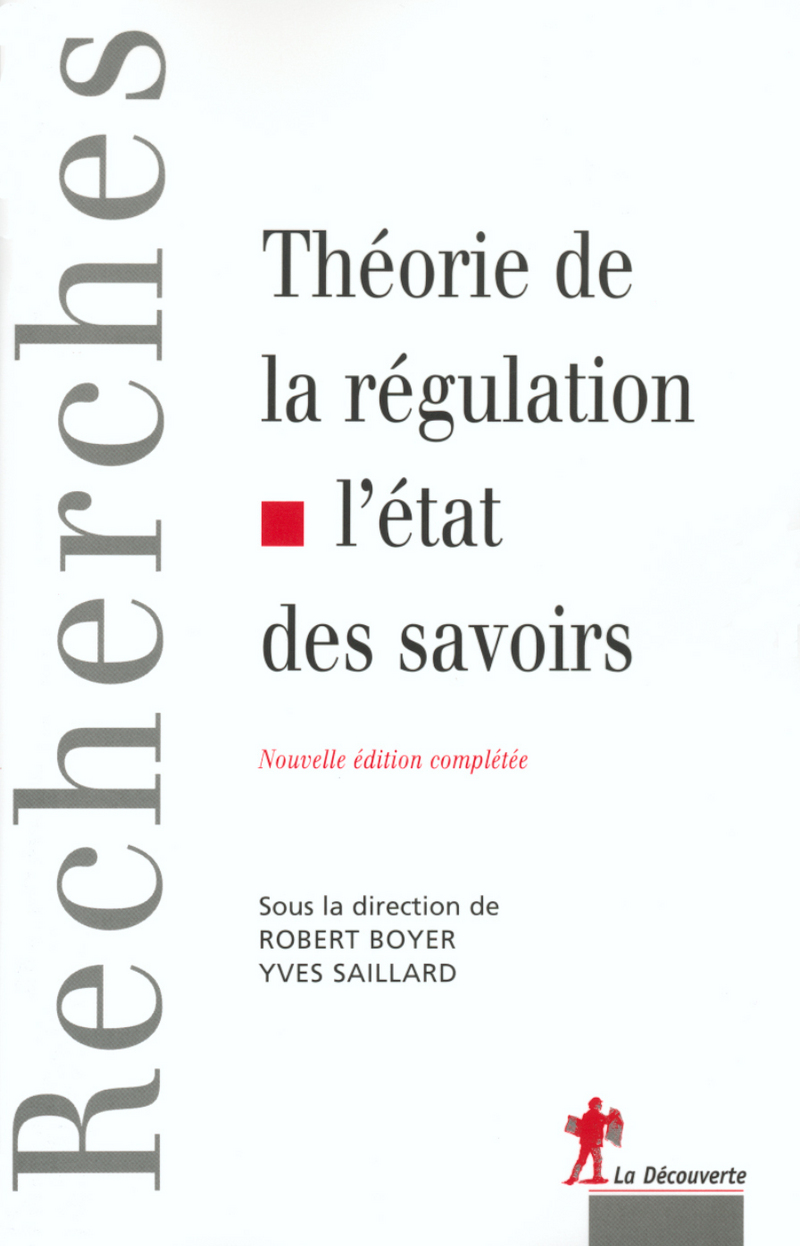Les capitalismes à l'épreuve de la pandémie
Robert Boyer
Depuis le début de la crise mondiale de la covid-19, les questionnements sur l'avenir des capitalismes se sont multipliés. Et nombre de voix se sont élevées pour que les " jours d'après " ne soient plus jamais comme " ceux d'avant ". Dans le court terme, les pronostics étaient confrontés à une incertitude radicale, invitant à la prudence : il faudra du temps pour démêler l'écheveau des responsabilités et construire d'éventuelles alternatives.
D'où l'importance de comprendre les ressorts de la crise. Comme l'a montré le célèbre 18 Brumaire de Louis Bonaparte de Marx (1852), les meilleures analyses " à chaud " sont le fait d'auteurs ayant une vision de la dynamique du système sur un horizon long. C'est pourquoi Robert Boyer, contributeur majeur de l'École de la régulation – qui étudie l'économie comme partie intégrante de sociétés traversées par l'histoire –, est bien placé pour relever ce défi. Lors de crises précédentes, il a démontré la valeur explicative de cette approche, qui prend en compte à la fois les inerties tendant à la reproduction du système et les forces impulsant sa transformation : l'issue n'est pas écrite à l'avance et plus longtemps durent les crises, plus le retour à la situation antérieure devient improbable.
Dans cet essai, l'auteur donne à comprendre les processus déclenchés en 2020 et éclaire sur le champ des possibles. La dislocation des relations internationales, l'éclatement de la zone euro, la déstabilisation de l'État social, la montée des populismes ne sont pas improbables. Mais n'est pas non plus exclue une grande bifurcation vers un nouveau modèle construit sur la complémentarité entre éducation, formation, santé et culture, qui répondrait à la demande de solidarité des citoyens et aux exigences de la transition écologique.

 Robert Boyer
Robert Boyer

Robert Boyer, anciennement directeur de recherche au CNRS, économiste au CEPREMAP et directeur d'études à l'EHESSs'est impliqué dès l'origine dans les recherches sur la régulation. Il a notemment publié Théorie de la régulation, l'état des savoirs (La Découverte, 2002) ; Croissance début de siècle (Albin Michel, 2002) ; Une Théorie du capitalisme est-elle possible ? (Odile Jacob, 2004) ; Les financiers détruiront-il le capitalisme ? (Economica, 2011). Il anime l'association Recherches & Régulation.
Table des matières 

Remerciements
Introduction. Comprendre comment le passé conditionne le futur
Face à une configuration inconnue des théories économiques, revenir à l'histoire
La covid‑19, impitoyable analyseur des sociétés
Vers la primauté du développement humain ? Un optimisme à tempérer
Face au risque d'effondrement des relations internationales, réenchâsser l'économie dans la société
1. Analyser un événement déconcertant
Un vocabulaire impropre, hérité des crises du passé
Moins l'effet de la diffusion du virus que de la décision de confinement
Ne pas se fier aux cadres conceptuels hérités des précédentes crises
Les économies n'avaient pas pleinement surmonté les conséquences de la grande crise de 2008
2. Pandémies, économies et changement institutionnel
Des épisodes qui se répètent mais dont la mémoire s'estompe
Des effets durables sur les systèmes de santé, sur l'économie et à certaines époques sur la société
Le coronavirus : continuités et nouveautés
Une forte différenciation des réponses nationales
Le coronavirus va aggraver les inégalités, surtout dans les capitalismes dominés par le principe de concurrence
3. Le temps de l'incertitude radicale
Un virus encore mystérieux
La pathologie des marchés financiers face à l'incertitude radicale
À l'État de fixer un horizon pour les acteurs
Quand l'interaction des incertitudes sanitaires et économiques fait alterner pessimisme et optimisme
Que devient le principe de responsabilité face à l'incertitude typique des pandémies ?
4. De l'urgence au " trilemme " santé, économie, libertés
Surprise et flottement des gouvernements
Le dilemme entre santé publique et pertes économiques : une étape décisive
Lorsque l'urgence transforme la citoyenneté : une menace sur les droits individuels ?
La première étape d'une sortie de crise : enrayer le risque de dépression cumulative
Les deux conditions d'une sortie de crise
5. Un mode de développement émergent centré sur la santé, l'éducation et la culture ?
Le secteur de la santé fragilisé par les transformations antérieures au coronavirus
Ce qui n'était qu'un coût devient un actif vital
Et si l'histoire moderne était celle de la silencieuse émergence d'un mode de développement original ?
La santé entre marchandise et bien collectif
Les héros du coronavirus seront‑ils reconnus comme acteurs collectifs d'un nouveau régime socioéconomique ?
6. Accélération et dialectique du capitalisme transnational de plateforme et des capitalismes d'État
Tous les acteurs ont dû réajuster leurs comportements et leurs relations
Capitalisme de plateforme et société de surveillance : une consolidation
Les capitalismes à impulsion étatique, réaction à l'ouverture internationale et au projet néolibéral
Capitalisme de plateforme et/ou capitalisme étatique : une paradoxale coexistence
7. Vers la dislocation des relations internationales ?
Des économies de plus en plus interconnectées, mais sans nouvelles coordinations internationales
Épidémies et écologie, même combat ?
L'ordre mondial menacé
Le coronavirus accélère la transformation des relations entre l'international et le national
8. Vers la fin de l'euro ?
L'intégration européenne est‑elle la solution ?
Vers un moment décisif pour l'Union européenne
9. Les sorties de crise : réencastrer économie, société et politique
Un impossible retour au
statu quo, mais des transformations qui ne font plus système
Le confinement a érodé les arrangements et conventions qui soutenaient le mode de régulation
Les limites des politiques traditionnelles face à une extrême hétérogénéité sectorielle et géographique
Enchaîner des cercles vertueux pour retrouver un système économique fonctionnel
Le retour de la confiance : indispensable, mais pas si simple
Les alliances politiques postcoronavirus : mission impossible ?
L'ampleur des déficits publics compromet‑elle la soutenabilité des régimes émergents ?
Les chances des divers régimes émergents : un pronostic
Conclusion. L'avenir reste ouvert
La pandémie, analyseur et accélérateur des transformations des capitalismes
Finance, économie et santé : une inversion des hiérarchies et des temporalités ?
Un exercice d'économie politique‑fiction
Bibliographie.




